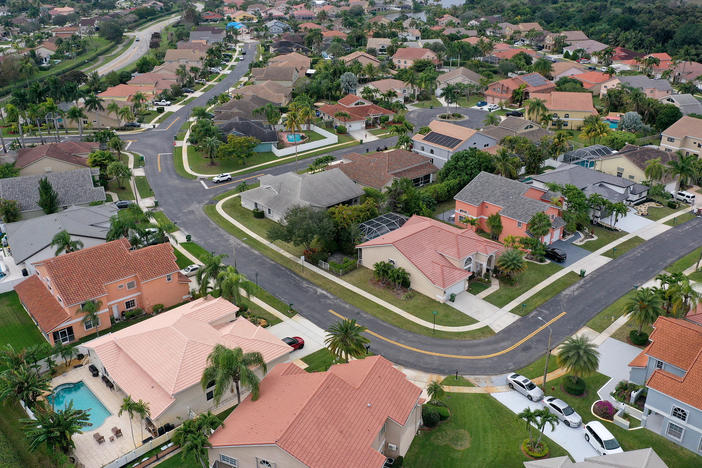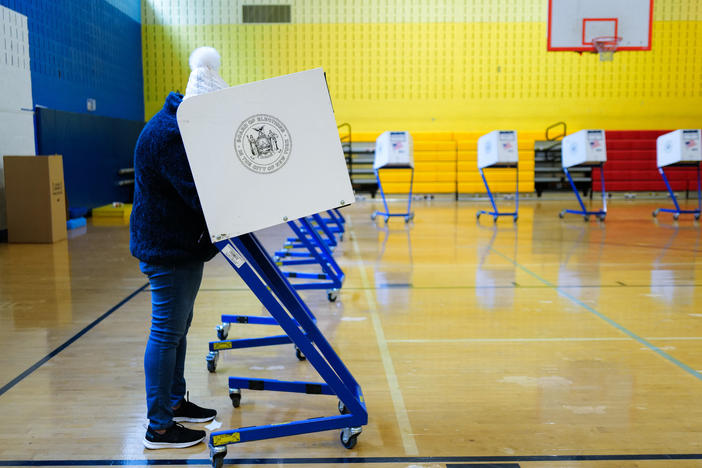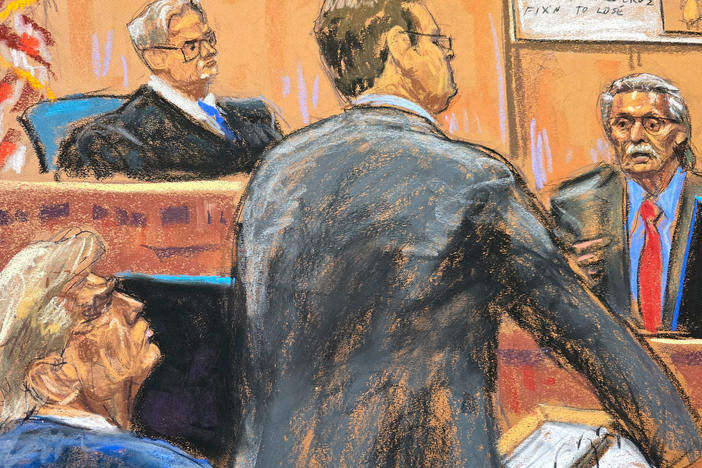Section Branding
Header Content
Crime Is The Key Issue In New York City Mayor's Race
Primary Content
With COVID-19 on the decline, New York voters want to know what mayoral candidates will do about rising crime.
Transcript
AILSA CHANG, HOST:
In New York City tomorrow, voters will begin casting their ballots in primary elections for mayor. While there is a Republican contest, most are watching the very crowded Democratic primary. Remember; Democrat Bill de Blasio cannot run because of term limits. After a year of this pandemic, voters in this deep-blue city say policing is their top issue. From member station WNYC, Brigid Bergin has the story.
BRIGID BERGIN, BYLINE: Here, across from Elmhurst Hospital in Queens, the epicenter of the city's COVID-19 pandemic, Nancy Davis says the effects linger.
NANCY DAVIS: You probably noticed virtually everybody wears their masks still to this day. Everybody saw the truck that was filled with bodies. You know, we walked right by it.
BERGIN: And yet with the virus down and vaccinations up, she says the biggest issue for her in this mayor's race is public safety.
DAVIS: Very few people want to do away with the police, and I think it was very unfortunate phrasing to say, defund the police. I'd be very much against that. I like seeing them, you know?
BERGIN: And she's not alone. Here are Mohamed Rahmen and Jose Martinez.
MOHAMED RAHMEN: I think we should defund the police slightly, but I feel like a lot of people are too radical with it. Like, chop the NYPD budget in half or something - I'm not really for that.
JOSE MARTINEZ: The police are supposed to be more tough. That's it. Here, everybody has a gun; nobody ask him where it goes (ph).
BERGIN: Voters' emphasis on public safety has bolstered the more moderate candidates in the race, especially with shootings up 77% year to date, including a spate of high-profile incidents. Last weekend, a shooter aimed into a Queens home and killed a 10-year-old boy. A few weeks earlier, a 4-year-old was wounded by stray bullets on a Saturday afternoon in Times Square.
(SOUNDBITE OF ARCHIVED RECORDING)
ANDREW YANG: What does that say about what's happening in Black and brown communities throughout our city, where we are underinvesting and we know that rates of gun violence are higher?
BERGIN: Andrew Yang is the former Democratic presidential candidate best known for his proposal for universal basic income. He jumped into the race in January as an immediate front-runner. He's been running neck and neck with Eric Adams, former New York City police captain who currently serves as the Brooklyn borough president, a position with little actual power but a very large megaphone. Both oppose cuts to the NYPD.
(SOUNDBITE OF ARCHIVED RECORDING)
ERIC ADAMS: We cannot wake up when those gunshots alarm us because they are near our homes. We must wake up when all families are dealing with the issues of gun violence.
BERGIN: To their left is Maya Wiley, a civil rights attorney and one-time member of the de Blasio administration. She's called for removing $1 billion from the NYPD's $6 billion budget.
(SOUNDBITE OF ARCHIVED RECORDING)
MAYA WILEY: Because we know what leadership looks like in our communities, and that means a seat at the policy table.
BERGIN: For months, the city's progressives were divided. But in a surprise move last weekend, New York City Congresswoman Alexandra Ocasio-Cortez said the left needs to coalesce.
(SOUNDBITE OF ARCHIVED RECORDING)
ALEXANDRIA OCASIO-CORTEZ: At the end of the day, we're going to pull up that ballot, and we're going to have to fill it out. And I'm putting Maya No. 1.
(CHEERING)
BERGIN: No. 1 because, for the first time, primary voters will be using the system known as ranked choice voting, which will allow them to rank up to five candidates. Back in Queens, Cornelius Watkins says he's considering Yang...
CORNELIUS WATKINS: I like the Asian brother.
BERGIN: ...And Adams.
WATKINS: That's No. 2. Now, he's smooth.
BERGIN: The voting itself will likely be the easy part.
WATKINS: Vote for one, two, three, four, five - yeah, that's better.
BERGIN: Waiting for results may be the challenge. Elections officials say it will be at least a week before voters know who won the Democratic primary.
For NPR News, I'm Brigid Bergin in New York.
(SOUNDBITE OF PECAS SONG, "T-SHIRT") Transcript provided by NPR, Copyright NPR.
Bottom Content



